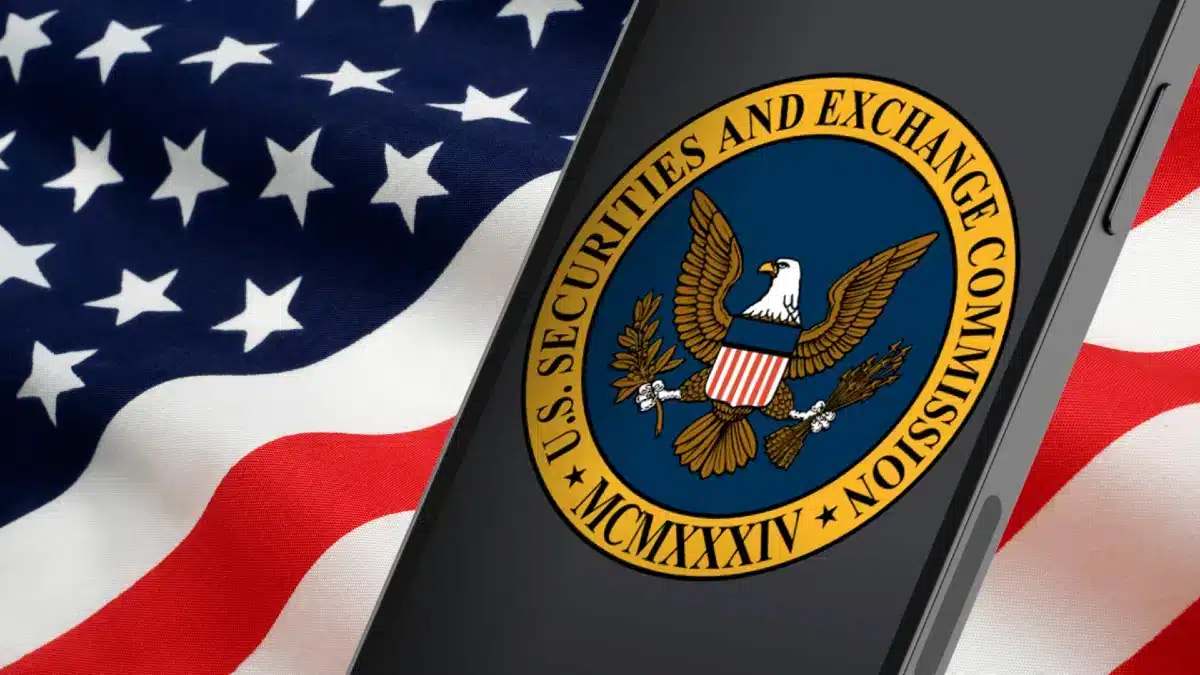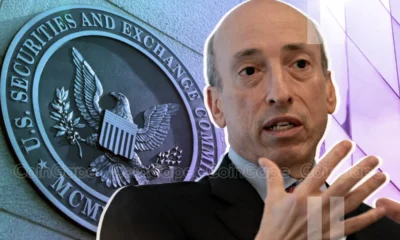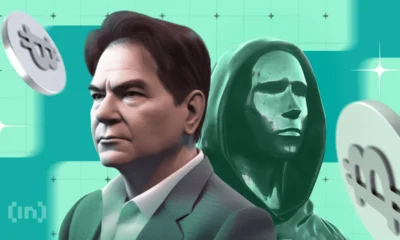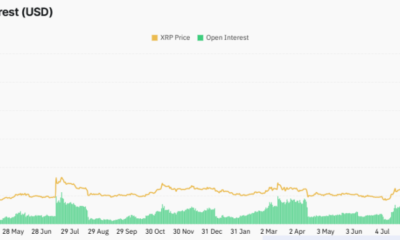NFT
US SEC Sued Over NFT Art Regulation Claims in LA Court

Brian L. Frye, a legal professor and conceptual artist, has sued the U.S. Securities and Exchange Commission (SEC) in an LA court for making NFTs securities under its regulation.
This lawsuit by Fry and Songadaymann is coming at a time when there is a debate on how to categorize digital art assets.
US SEC Sued Over NFT Art Regulation
According to the recent filing, the core of Fry’s lawsuit revolves around his view that the SEC’s interpretation of securities laws are too broad and do not promote artists who use NFT as their medium. Frye, Dogecoin’s Professor of Law, has been always questioning what he considers traditional interpretations of legal works especially such as his ‘SEC No-Action Letter Request’-a conceptual artwork.
In this project, according to him it was an unregistered security based on this kind of Howey Test which neither he received any response from the SEC regarding whether or not it is an unregistered security.
Today, @songadaymann and I sued the @SECGov in Louisiana federal court, asking for a declaration that the SEC can’t regulate the sale of NFT art. I’ve argued that the SEC is abusing its authority for years & now I’m testing my theory. Here’s the complaint. https://t.co/AD8xYpV0kC
— Brian L. Frye (@brianlfrye) July 29, 2024
Frye’s latest litigation explores how securities legislation impacts digital and conventional art markets. He argues that by taking its position, SEC restricts creativity among artists by imposing unnecessary barriers to entry into NFT space.
The attorney for Frye, Jason Gottlieb pointed out that this case would safeguard digital artist rights as well as put SEC within its regulatory limitations..
Role of NFTs in Art and Regulation
Frye’s lawsuit also underscores the broader implications of NFT regulation in the art market. NFTs, or non-fungible tokens, have surged in popularity among artists selling digital art, often fetching high prices at auctions.
However, the legal framework for NFTs is still unclear, as the US SEC has suggested that some NFTs could be considered securities, thereby requiring compliance with various rules and precautions. According to Frye’s complaint, art and, specifically, digital art sold as NFTs should not be treated as securities.
This approach opposes the SEC’s use of the Howey Test, a legal criterion developed in the 1940s to assess whether a certain transaction should be considered an investment contract. According to Frye, this approach of the SEC is unhelpful because art transactions, as contrasted from business transactions, are often based on the subjective qualities of the artwork.
SEC Accusations of Overreach
The case has garnered much attention especially because of Jason Gottlieb, Frye’s attorney on social media. Gottlieb had earlier defended the defendants in the DEBT BOX case in Utah which was rather infamous with the resignation of several members of the SEC and the shutting down of the SEC’s Utah branch.
XRP lawyer MetaLawMan pointed out that Gottlieb was instrumental in revealing dirty tactics in the SEC during that case and his involvement in Frye’s case may cause mayhem within the SEC.
Jason @ohaiom was the lawyer for the DEBT BOX defendants who famously exposed the lies of the SEC in a case in Utah.
That case ended with resignations & shuttering the SEC’s office in Utah.
Imagine the expressions at the SEC when they see Jason’s name on this complaint. 😂🍿 https://t.co/WEYbqWdDFP
— MetaLawMan (@MetaLawMan) July 29, 2024
Moreover, with Gary Gensler at the helm, the US SEC has intensified its crackdown on the crypto space, raising questions about the regulation of digital assets.
Therefore, the former President of the United States of America, Donald Trump, has also chimed in on the matter, vowing to remove Gensler from office on his first day back as president if he were to win the election. Subsequently, as reported by Coingape, Trump had blasted the SEC for its tough stance on digital assets promising to put an end to the “anti-crypto crusade” and the “persecution and weaponization” of digital assets.
Read Also: Galaxy CEO Warns Kamala Harris Against Senate Warren’s Anti-Crypto Stance
The presented content may include the personal opinion of the author and is subject to market condition. Do your market research before investing in cryptocurrencies. The author or the publication does not hold any responsibility for your personal financial loss.













✓ Share: